This is the second blog posting arising from my work over the last year or so on translating the third collection by the German poet, Peter Huchel. I hope to complete this for publication in the next few months and here (and in my previous blog) I have been gathering information about his life and times. In a working life that saw him through some of the most traumatic events of European history, Huchel published only 4 collections of poetry in 1948, 1963, 1972 and 1979. Throughout his career the substance of much of his work is his vivid observation of the natural world, moving gradually towards a usually brief, free verse form, a withdrawal from the personal and a steadily darkening vision which comes to be dominated by elegy and lament. Quotations from the poems in this blog are from my own translations.
Huchel divorced in 1946 and married Monica Rosental in 1953. In his work at the journal Sind und Form he was always determined to maintain editorial freedom and the publication had an international outlook with contributions from Aragon, Bloch, Brecht (two special issues), Camus, Eluard, Langston Hughes, Thomas Mann, Marcuse, Neruda, Russell, Sartre, Yevtuchenko and Zweig. Inevitably he came into conflict with the authorities and came under immense pressure to conform. He resisted them for 13 years – in part because of the determined support of Brecht. Brecht’s death in 1956 left Huchel more exposed. He was asked to resign his editorship, refused and so compelled the East German government publicly to force his resignation. A year after the building of the Berlin Wall in 1961, Huchel was banished at the age of 59 to effective house arrest in Wilhelmshorst. The poem ‘Hubertsweg’ vividly portrays this period of his life, from 1962 to 1971, living in isolation and under Stasi surveillance:
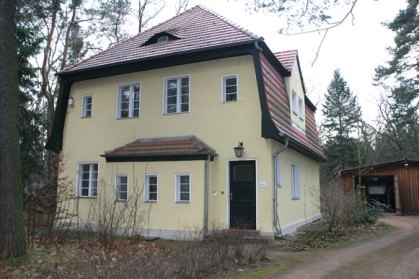
And at night
the roaring at the keyholes.
The fury of stems
splitting the earth.
And come morning
light roots out the dark.
Pine trees rake the mist from windowpanes.
He stands down there,
wretched as stale tobacco smoke,
my neighbour, my shadow
right on my heels as I leave the house.
Yawning sullenly
in flurries of rain from the bare trees,
he tinkers today with the rusty chicken wire.
What’s in it for him, scribing investigations
in his blue octavo book, my friends’ car numbers,
keeping watch on this hardly vulnerable street
for contraband,
forbidden books,
scraps for the belly,
stached in a coat lining.
A single twig to stoke the feeble fire.
Only his second collection of poems, Chausseen, Chausseen (‘Roads, Roads’) appeared in 1962. In defiance of the GDR authorities, he published it in the West. It was much praised – in the author’s absence. Henry Beissel has described the leanness and density of these new free verse poems: “images are more insistent on turning concreteness into code; sadness emanates from a sense of the inevitability of loss and from a world bent on self-destruction”.
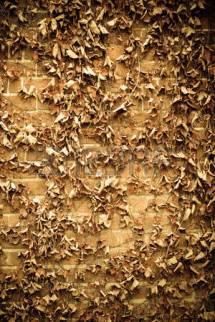
Fuse-wires
of withered leaves
glint on the wall.
Salt-white air.
The flight of cranes,
arrowheads of autumn,
In bright boughs
the hour’s pulse subsides.
Spiders deploy
their rims and spokes,
veils of dead brides.
Huchel’s images from nature are left to speak for themselves; his is often an impersonal, Symbolist poetry of a haunted and pessimistic kind. There is stoic survival and brutishness reflected in the curbed, elliptical, briefly allusive verse. Yet the poems remain marvellous acts of observation; the weather seems forever cold, wintry, foggy:
Estates,
disordered,
dust across the ground,
the heirs dead.
And grim skies,
grey cellars
of fogbanks.
The cold breathes
in echoing colonnades.
Huchel applied for an exit visa for himself, his wife and son on numerous occasions. He was supported by an internationally orchestrated campaign and eventually in 1971 the Ulbricht government granted his release. He lived first in Rome, then in a borrowed house near Freiburg in West Germany. Gezählte Tage (‘Numbered Days’) appeared in 1972, the title suggesting the counted days of Huchel’s years under house arrest, his poems recording them, marking them, but also a residual sense of them actually counting towards something, his legacy as a poet, his final release. But like many GDR artists who moved to the West, Huchel was equivocal about what he found there. Because the GDR had failed to bring about a truly democratic and socialist society did not mean that Huchel had given up his ideals and the West’s materialism, egotism and faithless profiteering were repellent to him.
Beside the whitewashed wall
a monk clambers up steps,
sweat trickling from his brows.
Everything fades in light and heat,
the rough ochre of walls,
the fragile, scant moss on stones,
the spare green by the river.
The bellringer walks in ripped canvas shoes,
soon midday will sound.
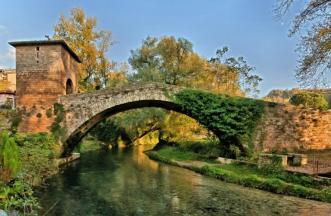
Huchel’s religious beliefs are difficult to pin down but certainly the poems of Gezählte Tage show a modern wasteland not confined to the East, a spiritual emptiness where, as in ‘Subiaco’, set in Italy, Pilate’s bowl stands emptied of water so the accumulation of guilt cannot be washed away. Nature still provides some recourse but not much of one. Huchel’s gloom is partly determined by his own nature, partly his background, political persecution, his divorce from his Brandenburg homeland. He often uses deliberate anachronism to make a point as well as Shakespearean and fairy tale motifs to evoke a lost time, a lost race, a golden age gone – with which he bears witness to his time. ‘Middleham Castle’ – where Richard III spent some of his youth – is a major poem in which Shakspeare’s tyrant lives on through the centuries as an image of oppressive power:
His foot is worm-eaten.
Gloucester walks to the stables,
the flagstones groaning.
The mastiffs lower their heads
anticipating the whip.
We are his servants,
we go in fear of his blade,
though his skull,
picked clean by so many winters,
lies deep in the ground.
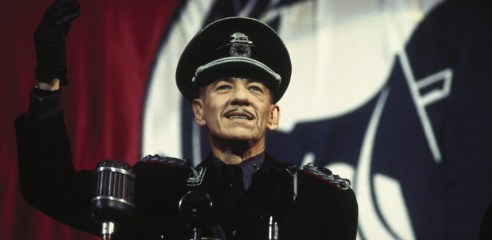
In Huchel’s brief years in the West he was lauded and awarded literary prizes but this was just another form of exile. His final book Die Neunte Stunde (‘The Ninth Hour’) appeared in 1979. It is a book almost exclusively of elegy and lament; the ninth hour is the hour of despair, the hour in which Christ is said to have died on the Cross, crying out, “My God, my God, why have you forsaken me?” Huchel himself died in 1981, aged 78. I think I hear something of his more personal voice, attuned to the natural world but gifted only a tragic place in history, compelled to labour against the odds, in the unnamed peasant who Huchel has narrate ‘Middleham Castle’:
Familiar with the ways of great forests –
the year streaked with the jays’ colours,
painful brightness of frosted boughs,
the winter hair of deer stuck to bark,
fawns huddled together at evening,
warming themselves in the cloud of their breathing –
up the gorse-clad hill with rope and horses
I haul tree trunks to Middleham Castle.
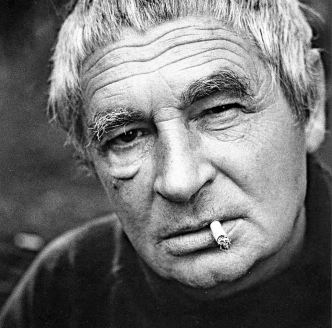
Discover more from Martyn Crucefix
Subscribe to get the latest posts sent to your email.
Thanks so much so these, Martyn. This is invaluable.
LikeLike
Thanks for this Michael much appreciated
LikeLike
[…] Huchel. I hope to complete this for publication in the next few months and here (over this and my next blog post) I have been gathering information about his life and times. I’ve found people know of his work […]
LikeLike
Excellent posts about Peter Huchel, and support any initiative to encourage more people to read his work. Was wondering what is known about his time as a Soviet Prisoner of War. Did Huchel have to undergo some sort of rehabilitation process before becoming a citizen of the DDR ?
LikeLiked by 1 person
I’m not sure I can answer those questions Michael though many thanks for asking them. Apparently, he was writing and had been commissioned to write an autobiography but it never got finished. I don’t even know what if anything was completed. He seems much appreciated in Germany but much less known in the UK or USA. He has been fascinating to get to know through his work. Not sure when my translations will be out – hopefully during 2019. Hope you will buy the book! Best wishes.
LikeLike
Thank you for these translations and info. I would like to know if you’ve finished your translations? I would love to buy the book as I’m very interested in his work. Thank you!
LikeLike
Hi Tiffany – are you related by any chance? I have finished the translations and we are working on permissions and then to publication dates. Perhaps you might like to follow my blog as any breaking news will be appearing there first. Thanks for your interest.
LikeLike